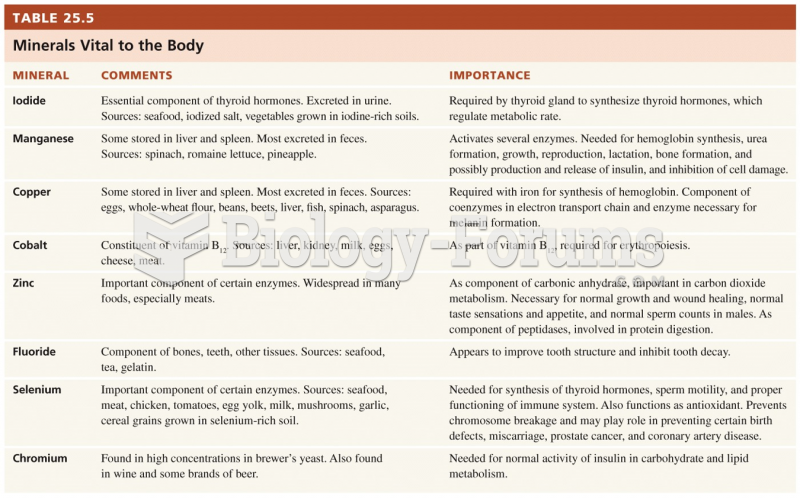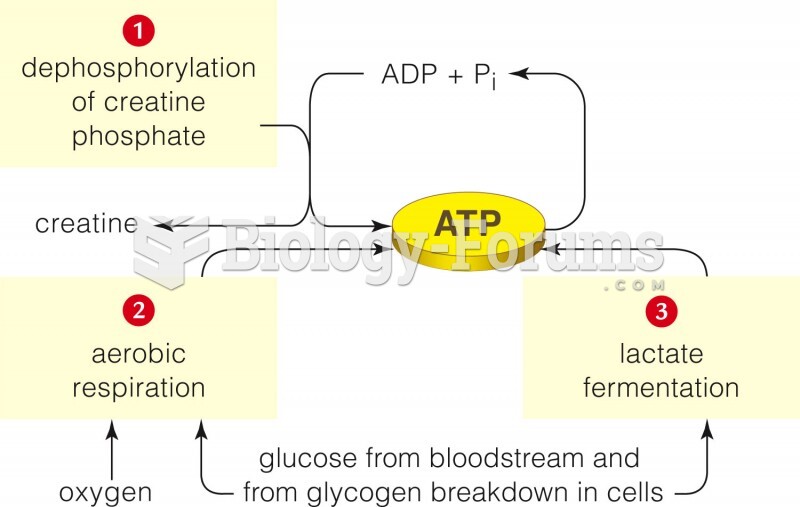|
|
|
After 5 years of being diagnosed with rheumatoid arthritis, one every three patients will no longer be able to work.
Approximately 25% of all reported medication errors result from some kind of name confusion.
There are over 65,000 known species of protozoa. About 10,000 species are parasitic.
Stevens-Johnson syndrome and Toxic Epidermal Necrolysis syndrome are life-threatening reactions that can result in death. Complications include permanent blindness, dry-eye syndrome, lung damage, photophobia, asthma, chronic obstructive pulmonary disease, permanent loss of nail beds, scarring of mucous membranes, arthritis, and chronic fatigue syndrome. Many patients' pores scar shut, causing them to retain heat.
In most cases, kidneys can recover from almost complete loss of function, such as in acute kidney (renal) failure.







